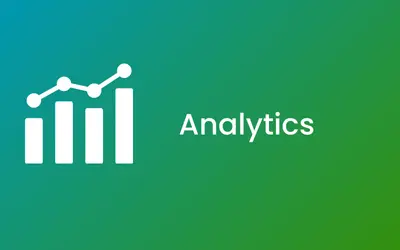Brisbane, the capital city of Queensland, Australia, is rapidly becoming a hub of higher education and research, including in the field of data analytics. With the increase in data volume, businesses are constantly seeking professionals who can effectively handle and make sense of the data generated by their operations. As a result, there is a growing demand for analytics courses in Brisbane that can teach students the skills required to identify patterns, develop insights, and make informed decisions based on data. There are numerous analytics courses available in Brisbane, ranging from undergraduate and postgraduate degrees to graduate certificates and diplomas. These courses cover a broad range of topics such as data analysis, data mining, business intelligence, data visualization, predictive modeling, machine learning, and data-driven decision-making. Students can choose to specialize in areas such as marketing analytics, financial analytics, healthcare analytics, and social media analytics. One of the most popular analytics courses in Brisbane is the Master of Analytics program offered by the University of Queensland. This program is specifically designed to provide students with the skills and knowledge necessary to analyze and interpret complex data sets. The curriculum includes courses such as Data Analytics and Visualization, Statistical Data Mining, and Big Data Analytics. Students also have the opportunity to gain practical experience through industry internships and capstone projects. Another popular analytics course in Brisbane is the Master of Business Analytics program offered by Queensland University of Technology (QUT). This program combines business acumen with technical skills to train students to make data-driven decisions in complex business environments. The curriculum includes courses such as Data Warehousing and Business Intelligence, Data Visualization, and Predictive Analytics. The Griffith University offers a Bachelor of Business Analytics program that covers a range of topics like database management, data analysis, business statistics, information systems, and machine learning. This program is designed to equip students with the skills needed to work in data-centric roles across numerous industries. Apart from universities, there are several private institutions offering analytics courses in Brisbane. These include the Academy Xi, which offers part-time short courses in Data Analytics and Data Visualization. The Data School, which offers intensive training programs in data analytics for beginner-level to professionals. Overall, there has never been a better time to pursue an analytics course in Brisbane, with diverse options from universities and private institutions. These programs provide students with the skills and knowledge necessary to collect, manage, and analyze data; skills that are in high demand in the current job market. Graduates of these programs can look forward to a wide range of career opportunities in fields such as finance, marketing, healthcare, and IT, as well as data-driven roles in government and non-profit organizations.

₹60,000


Watch how students, freshers, and professionals transformed their careers with Skillfloor's Analytics Courses Reviews
Hurry Up!
Limited seats call us now for amazing discounts on Analytics Courses course



Skillfloor is a Government-Recognized Skill Development Institute under Startup India (DPIIT), offering career-focused certification programs in Analytics, Artificial Intelligence (AI), Data Science, Digital Marketing, SEO, and related domains. As one of India's largest training institutes, our courses emphasize hands-on projects, expert mentorship, and skills aligned with real hiring needs. With flexible learning options - online, offline, and hybrid, plus 100% scholarships for selective students, we make quality, job-ready education accessible.
Explore the program that aligns with your goals and take the next step with Skillfloor.



- Overview of data analysis and its importance in business
- Types of analytics: Descriptive, Predictive, Prescriptive
- Role of data in decision-making processes
- Introduction to common tools: Tableau, PowerBI, Excel
- Ethical considerations in data collection and analysis
- Data sources: Primary and secondary data
- Data collection methods (surveys, web scraping, databases)
- Data cleaning techniques (handling missing values, outliers)
- Data transformation and feature engineering
- Data storage concepts (structured vs. unstructured data)
- Descriptive statistics: Mean, median, mode
- Data visualization basics (histograms, scatter plots)
- Identifying data patterns and trends
- Outlier detection and handling methods
- Correlation and causation analysis
- Inferential statistics and probability theory
- Hypothesis testing (t-tests, chi-square tests, ANOVA)
- Measures of central tendency and variability
- Confidence intervals and margin of error
- Regression analysis: Linear and logistic regression
- Principles of effective data visualization
- Types of charts and their uses (bar, line, pie, heatmaps)
- Designing dashboards for different audiences
- Interactive visualization techniques
- Data storytelling for impactful presentations
- Time series analysis and forecasting methods
- Clustering and segmentation analysis
- Decision trees and classification techniques
- Introduction to machine learning in business analytics
- Model evaluation and selection
- Basics of SQL for data manipulation
- Creating databases and relationships
- Aggregating data with SQL (GROUP BY, JOIN)
- Data modeling for business intelligence (star and snowflake schemas)
- Case study: Building a business model with SQL
- Connecting and preparing data in Tableau
- Creating basic visualizations (charts, maps)
- Advanced Tableau functions (LOD calculations, table calculations)
- Building interactive dashboards and stories
- Publishing and sharing visualizations on Tableau Server/Online
- Introduction to PowerBI workspace and components
- Data import and transformation with Power Query
- Data modeling and relationships in PowerBI
- Creating and customizing visualizations
- Publishing and collaborating on PowerBI Service
- Selecting a real-world dataset for analysis
- Defining business questions and objectives
- Conducting data analysis and visualization
- Presenting findings in a comprehensive dashboard
- Peer review and feedback on project